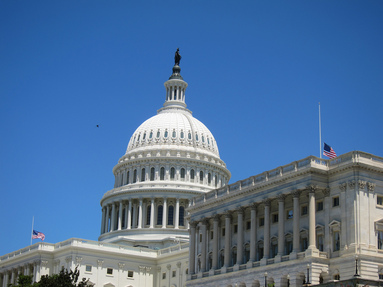
Think about it. You wouldn’t want a surgeon who proudly boasts, “I will operate on you as a complete outsider, totally uninfluenced by the profession or anything that is taught in medical school.”
You wouldn’t want a plumber who smiles as he tells you he has no idea how to use any of his tools in his belt. If your airline pilot was plucked off the street at the last minute
| | because the airline decided to “throw the bums out,” you might be forcing open the doors and taking your chances with the emergency inflatable chute. And yet it’s hard to imagine someone new running for Congress who doesn’t proclaim that he or she is a Washington outsider who is not a professional politician. On one level, this can easily be understood. According to the web site Realclearpolitcs.com the public’s approval rating of Congress currently sits at a dismal 20.7 percent, which is actually considerably better than only a few months ago (a lot of Americans may mistakenly believe the new Congress they elected already has been seated). When nearly 80 percent of the people who hire you think your profession is doing everything wrong, you’re naturally going to distance yourself from your colleagues. But on a more practical level, we have Alan Grayson, newly elected congressman from Florida who held his seat once before until he was briefly thrown out as a “bum” in 2010. He has three academic degrees from Harvard and a working knowledge of the federal bureaucracy — liabilities in some voting booths. “Wouldn’t you want somebody in Congress who actually knows how to do that stuff?” the New York Times recently quoted him as saying. Wouldn’t we? It’s a tougher question to answer than many assume. The Times interviewed Grayson as part of a story analyzing the incoming Congress. The most recent election, it seems, was a type of boomerang to the 2010 electoral purge. In some parts of the country, it was an “anti-antigovernment wave.” People with government experience are replacing people who truly don’t understand politics, but not completely. The new Congress will mix the two groups, although they will be hard to tell apart. That’s because even those with insider experience claim they aren’t really a part of Washington. “The makeup of Congress has not been this volatile in 20 years,” the Times story said. That’s hardly comforting for a nation that seems to confront one cliff after another. No matter what the current lame-duck Congress does to avoid the “fiscal cliff,” it isn’t going to solve the long-term issues of reforming the tax code and entitlement programs, funding defense and confronting the ever-rising debt ceiling. Those will be up to the new bunch to confront. This generation invented neither politics nor the dislike of politicians. Ideology and compromise have always been in conflict, as anyone who has watched the 1939 classic, “Mr. Smith goes to Washington” can attest. When too many uncompromising ideologues dominate, ideology becomes the overriding issue. Majority rule is gold. Details, we are told, are where the devil resides, but ideology pushes them aside. The Affordable Care Act is a perfect example. Winning was everything at the time, but the details have now led 16 Democratic senators who voted for the act to ask that one provision, a 2.3 percent tax on medical devices, be at least postponed from taking effect Jan. 1. On the other hand, a Congress dominated by experienced politicians and policy wonks could easily forget the concerns of the voters who put them there. Instead, they build bulwarks against accountability. Ultimately, it’s impossible for politicians to be divorced from politics, no matter what they would claim. Outsiders have much to offer with fresh ideas and ideals. Experienced politicians know how to get things done. The two don’t have to cancel each other out. As the recent past has shown, politicians can solve problems or draw ideological swords and engage in endless battle. They cannot do both. |

 RSS Feed
RSS Feed

